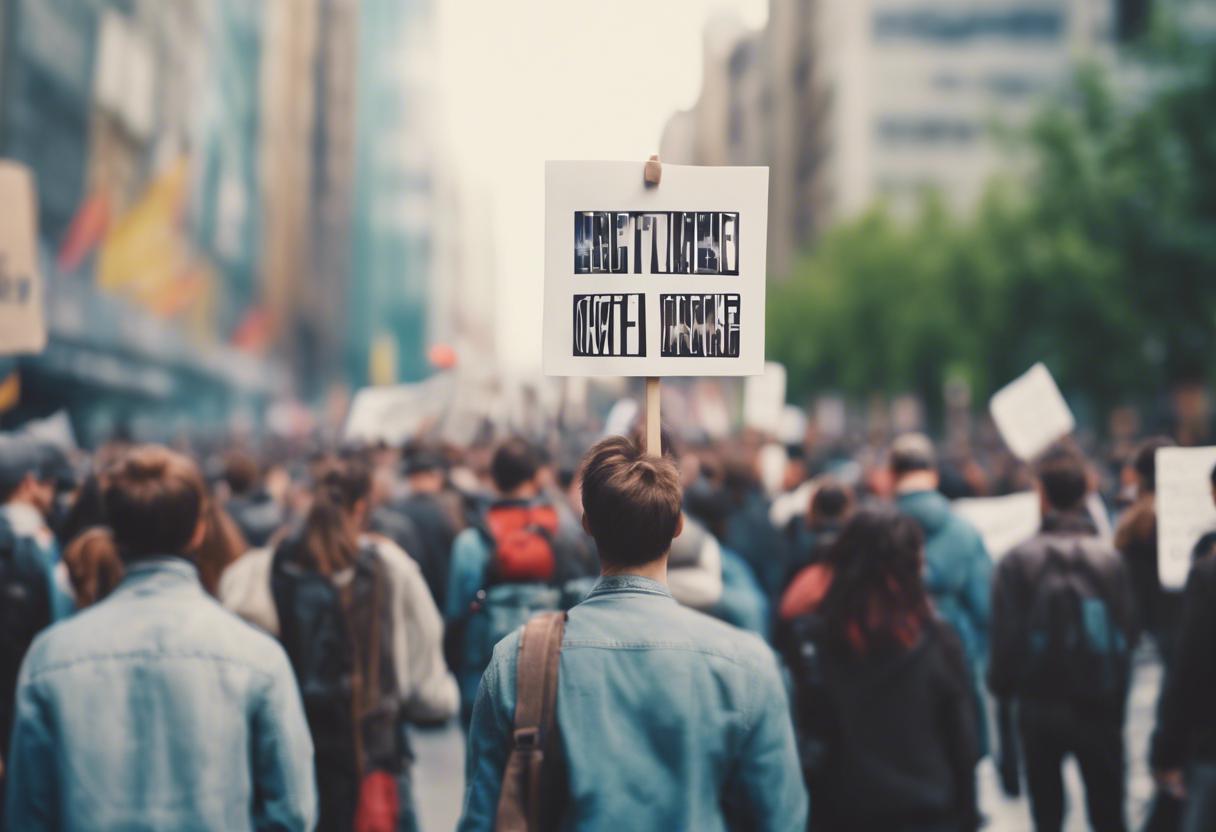Tánaiste Micheál Martin has voiced his disquiet at the events highlighted on last night’s RTÉ Investigates, pointing to a need for the nation to examine the circumstances that led to a riot during an anti-immigrant protest in Coolock, Dublin, in July. He acknowledged the courage and efforts of the RTÉ Investigates team, and particularly journalist Barry O’Kelly who has been documenting demonstrations opposing housing for immigrants for the past six months.
The documentary presented shocking events from July 15th at the former Crown Paints site in Coolock. A security officer was rendered unconscious due to an assault with a pole, petrol bombs were launched, and construction workers were subjected to abuse by those protesting against immigration.
Commenting from Cork, Micheál Martin lavished praise on RTÉ Investigates, and notably Barry O’Kelly, for braving the front lines to expose a worrying tendency gaining traction in Ireland.
He voiced his concerns about individuals assuming authority beyond their right, threatening workers simply carrying out their daily tasks, and perpetrating harassment and violent offences directed at immigrants and the wider population.
The Tánaiste deplored the shocking incidents recorded by RTÉ Investigates, asserting that we must review and reflect on what transpired as a learning opportunity.
Martin illuminated the necessity for the State to learn from the Coolock incident, expressing his unease with what he witnessed on the documentary. Acknowledging the gardaí’s comprehensive statements accounting for the event, he noted the involvement of roughly 200 officers.
He further expressed his concern about this seemingly new trend in Ireland where individuals feel entitled to assert control over certain spaces or, more worryingly, to presume they can administer justice themselves.
“Certainly, there are invaluable lessons to glean from recent events, and perhaps, a critical appraisal of our criminal justice system is warranted to handle the type of conduct displayed on the show RTÉ Investigates,” expressed Mr Martin. Despite some suggestions in the documentary, he didn’t provide any comments on whether the Garda’s reaction to the unruly protests at Coolock was ineffective. However, he conceded that the era of the “traditional Garda approach” has come to an end.
He noted a particularly threatening period when the facility’s staff consistently contacted the Gardai. Despite the ominous situation, the authorities arrived and managed the situation. Learning from such experiences, he said, is crucial.
Mr Martin drew parallels with the UK’s speedy legal response to recent riots, with individuals appearing in court within days and some receiving sentences within a week. He suggested that Ireland could adopt such prompt actions.
He further envisaged that the age-old response norms can no longer be entertained, and organised lawlessness by individuals cannot be tolerated. The CEO emphasised that those accountable for the chaos at Coolock would be brought to justice.
He reassured, “There have indeed been a substantial number of key arrests following the incident. Various individuals are currently facing the court following a report submitted to the Policing Authority.”.
Furthermore, Mr Martin expressed his disapproval of the reported “intimidation” towards RTÉ staff, particularly journalist Barry O’Kelly. He advocated for media freedom, expressing, “There should be zero tolerance for any obstruction of the press. Professionals such as Barry O’Kelly and camera crews should be allowed to perform their duties freely without threats and intimidation. Any such threats seen in the programme pose a danger to our democracy, let’s be crystal clear on that.”.

